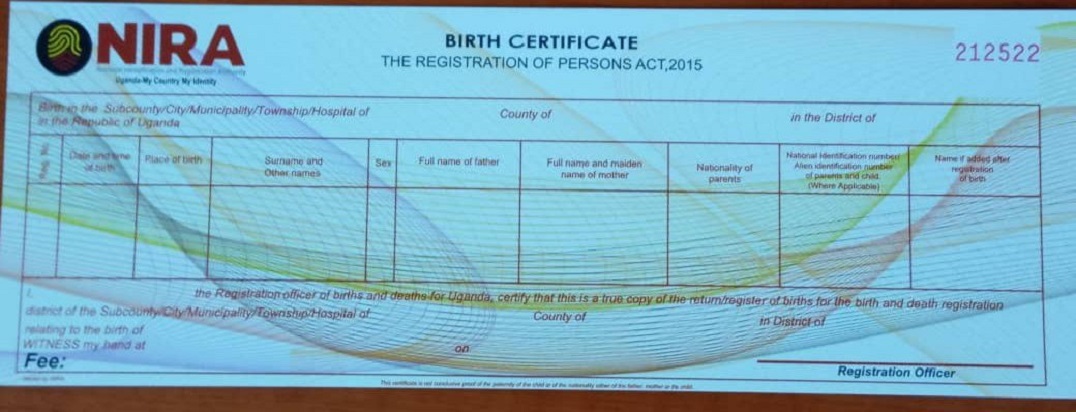Biostatisticians at Makerere University are calling for enforcement of penalties after they found vital data missing from information collected by the National Identification and Registration Authority (NIRA) while registering births and deaths in the country.
The researchers who were assessing the quality of birth and death registration and vital statistics system in Uganda in a study that started in November 2020 say the data is unreliable because they have a lot of missing information.
They explained that in some instances they found a birth registered but there are no details of where it happened or details of the mother.
Speaking to URN in an interview just after releasing the results of the study on Thursday, Dr. Simon Kasasa who was the principal investigator on the study said while NIRA has introduced a system of notification right at the hospital when a baby is born, many Ugandans are unaware of this as their data shows people are registering births later on than its recommended by UN for babies to be registered immediately.
Currently, a mother is given a form in the hospital which they are supposed to take to the district for notification of birth but he says many are registering at around the third year of life which is partly explained by the fact that some schools now ask for birth certificates when children are enrolling. Even then, a lot of vital information is missing.
The researchers sampled a district in each of the regions where they assessed data collected in Mpigi, Lira, Tororo, Kabale, and Masaka to see whether the information collected is reliable enough to say that the country has a functional civil registration and vital statistics (CRVS) system.
Such a system includes continuous registration and certification of vital events and is essential for administration and planning for any country. Africa however, only has a handful of countries with refined data and in East Africa, it’s only Kenya has so far made strides in this area.
In Uganda, data shows only 16.9 percent of children under five years of age are registered. Overall, birth registration stands at 32 percent whereas death registration and reporting are lower at just 24 percent.
With such statistics, scientists recommend the introduction of death permits before burial.
However, Rosemary Kisembo, the NIRA Executive Director said when they previously made a proposal that hinted at introducing death permits to Members of Parliament, there was a backlash.
In Kenya where a lot of strides have been made, she says it’s part of the culture to bury at the weekend and have permits but here she reports people complained that it was another way of making payments.
Kisembo reveals that they resolved to pay for data for notification of births at health facilities because they thought this would be the most effective way considering that up to 80 percent of births in Uganda are currently happening at the health facility.
But, for deaths, she says they are still challenged since about 64% of them happen in the community.
To be able to make strides in the registration of births and deaths, Kisembo says there will be a need for awareness to make the public appreciate why this data should be taken.
-URN





